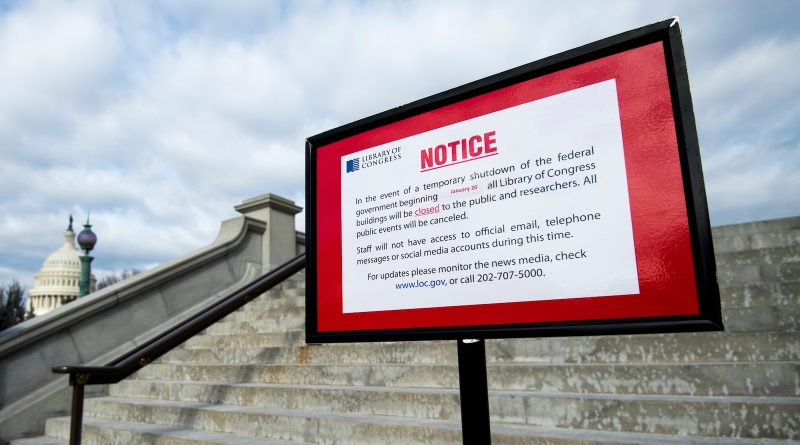Potential Consequences of a Government Shutdown
As Congress faces a critical deadline to pass a government funding agreement, millions of federal workers and contractors are left uncertain about how a potential government shutdown might affect their livelihoods—especially with the holiday season approaching.
If the government shuts down at 12:01 a.m. Saturday, it would mark the 21st funding lapse since the 1977 fiscal year. Historically, shutdowns have ranged in duration from just a single day to a record-breaking 34 days. For the estimated 3.5 million federal workers and countless contractors impacted by the shutdown, the timing couldn’t be worse.
Impact on Federal Workers and Contractors
According to payroll schedules from the U.S. General Services Administration, federal employees could begin missing paychecks as early as January 3 if no agreement is reached. While some workers would be sent home without pay, others—such as airport security officers and active-duty military members—would still be required to work, albeit without compensation until funding resumes.
Federal contractors face an even harsher reality: they are not guaranteed backpay for the duration of a shutdown. This could lead to significant financial strain for many individuals and families who depend on regular paychecks.
Effects on the Military
A shutdown would significantly affect the Department of Defense, requiring approximately 1.3 million active-duty service members to continue working without pay. Additionally, nearly half of the 700,000 civilian defense employees would also have to work without receiving their regular paychecks. Contractors working with the military would not be required to work and would lose income during the shutdown.
Travel Chaos During the Holidays
The potential shutdown coincides with some of the busiest travel days of the year. The Transportation Security Administration (TSA) has over 62,000 employees, of which approximately 59,000 are considered essential. These individuals would continue working without pay to ensure passenger safety.
TSA expects to screen around 40 million travelers over the holiday period through January 2. However, TSA Administrator David Pekoske has warned that a prolonged shutdown could lead to longer wait times at airports.
Air traffic controllers, a critical component of safe air travel, would also continue working without pay. Nearly 13,000 controllers would remain on duty, while hiring and training new controllers would halt. During the 2019 government shutdown, a mass sick-out by air traffic controllers significantly disrupted travel and contributed to reopening the government.
Border Security Operations
The Department of Homeland Security estimates that 60,971 U.S. Customs and Border Protection employees and 17,575 Immigration and Customs Enforcement workers would also be required to work without pay. These essential workers would continue critical operations to maintain border security.
Social Security and Medicare
Social Security and Medicare payments are classified as “mandatory” spending and will continue uninterrupted. However, federal agencies have warned that some services associated with these programs could experience delays or slowdowns.
Holiday Mail Delivery
The U.S. Postal Service (USPS) will remain operational during the shutdown, as it relies on its independent revenue stream. Americans can expect mail services to continue without interruption, ensuring holiday packages and cards reach their destinations on time.
Other Potential Impacts
Although the shutdown would begin on a Saturday, many Americans might not feel its full effects until the following Monday.
- National Parks: The National Park Service has stated that it is hopeful a funding lapse will not occur. However, in the event of a shutdown, routine visitor services are expected to remain operational through Sunday. The agency is still determining specific plans for individual parks.
- Smithsonian Museums and National Zoo: The Smithsonian Institution, which operates 21 museums and the National Zoo in Washington, D.C., is reviewing contingency plans. A spokesperson has indicated that further guidance will be provided soon on how a shutdown might impact these facilities.
Looking Ahead
As the Friday night deadline looms, the uncertainty of a government shutdown places millions of Americans in precarious positions. Federal employees, contractors, and ordinary citizens alike are bracing for the potential disruptions that could ripple across the nation.
While lawmakers scramble to negotiate a resolution, the stakes are high for many individuals and families who depend on government services and paychecks, particularly during the holiday season.

